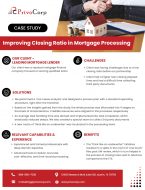While buying a home is a dream come true for most, it’s also a major investment given that real estate has become a popular investment vehicle over the last 50 years or so. A home is considered to be in a different asset class and can help homeowners achieve their financial goals.
There are some ways that will enable homeowners to get cash from their home that they can use for other purposes like paying for children’s higher education, refurbishing home or consolidating debts. Cash-out refinance and home equity and both ways of doing this.
What Is a Cash-Out Refinance & How It Works?
A cash-out refinance is a new first mortgage that lets homeowners take out some of the equity they have created in the home in the form of cash. This is possible only if they have had their mortgage loan long enough to have created equity.
Most often, a cash-out refinance is possible when the value of a home goes up. So, if homeowners need funds and feel that the home value has increased since the time they bought it, they may be able to do a cash-out refinance.
How does a cash-out refinance work? So, in case of a cash-out refinance, the existing mortgage is replaced with a new one. The loan amount on the new mortgage is higher than the amount the borrower currently owes. Once the loan amount is disbursed, borrowers will get the difference between their new loan amount and current mortgage loan balance after reduction of the equity they’re leaving in their home and any closing costs and fees. The monthly payments would increase to account for the new loan amount.
If you’re ready to scale your mortgage business and embrace the growth that HELOC offers, talk to our experts today.

How Much Equity Can be Cashed Out of The Home?
In case homeowners have chosen a cash-out refinance option, they may most likely not get a loan for the entire value of the home. Most loan types require that homeowners leave some equity in the home. FHA and conventional loans require to leave 20% equity in the home while VA loans are an exception as they allow to get a cash-out loan for 100% of the value of the home.
What is HELOCs (Home Equity Loans) & How It Works?
A home equity loan is a second loan that is separate from the mortgage. It allows homeowners to borrow against the equity in the home. A home equity loan differs from a cash-out refinance since it does not replace the current mortgage. Instead, it’s a second mortgage with a separate payment. This is why home equity loans tend to have higher interest rates than first mortgages.
How does a home equity loan work? A home equity loan is an entirely separate loan from the mortgage which is why none of the loan terms for the original mortgage will change. Once the home equity loan closes, lenders have to pay homeowners a lump sum amount of payment, which they will be expected to repay, most often at a fixed rate.
- Restrictions on the Loan
As is the case most often, lenders will seldom allow to borrow 100% of the equity for a home equity loan. The maximum amount that can be borrowed differs depending on the lender, but it’s usually between 75% and 90% of the value of the home. In case of a cash-out refi, the amount that can be borrowed will depend on varied factors like homeowner’s credit score, debt-to-income ratio (DTI) and loan-to-value ratio (LTV).
- Similarities & Difference Between Cash Out Refi & HELOCs/HELOANs
Bot these kinds have some similarities and differences that can be evaluated to choose what works best for the homeowner.
Let’s look at the similarities first.
Whichever option is chosen, in both cases, money is received immediately or within 3 business days after the deal is closed. The waiting period is given in case homeowner wishes to change mind and exercise their right of rescission on a refinance.
Secondly, in both cases, homeowners borrow against the equity in the home. This means that both options will be using the home as collateral, which means in both types, the interest rates are lower as compared to other types of loans.
The third similarity is that in both cases, most often, there cannot be 100% equity from the home. Typically, lenders and loan types need borrowers to leave some equity in the home.
Coming to differences, cash-out refinances are first loans, while home equity loans are second loans. A cash-out refinance pays off the existing mortgage and gives a new one. Meanwhile, a home equity loan is a separate loan from the mortgage and adds a second payment.
The other difference is that cash-out refinances have better interest rates. Since these are first loans which means they will be paid first in case of a foreclosure, bankruptcy etc, they typically have lower interest rates.
Which is Best/Cheaper: Home Equity or Refinance?
When choosing between the two options, it is observed that home equity lines of credit and loans usually come with seminally lower closing costs than cash-out refinances. Sometimes the lender will even absorb these costs, too. So, while a HELOC may have higher interest rates, if those rates are comparable to the current mortgage rate, the best choice may be a home equity loan, especially if only a small amount of money is to be borrowed.
How PrivoCorp can help with Processing Support?
Even if the borrower chooses either of the options, they still require processing and data management. If as a lender, your organization is not equipped enough to handle the workload or needs a support system to manage the processing, partners like PrivoCorp can help.
PrivoCorp helps reduce the costs involved in the processing and increases efficiencies for lenders.
Given that lenders need to handle a lot of incoming communication from borrowers, it is imperative that they opt for a robust technology platform in order to allocate the details to relevant teams as per the customers’ information. PrivoCorp offers a flexible engagement model to help lenders lower their fixed costs and simplify the processing even further.
In turn, lenders can commit faster and smarter loans to customers with PrivoCorp by your side.
If you’re ready to scale your mortgage business and embrace the growth that HELOC offers, talk to our experts today.









